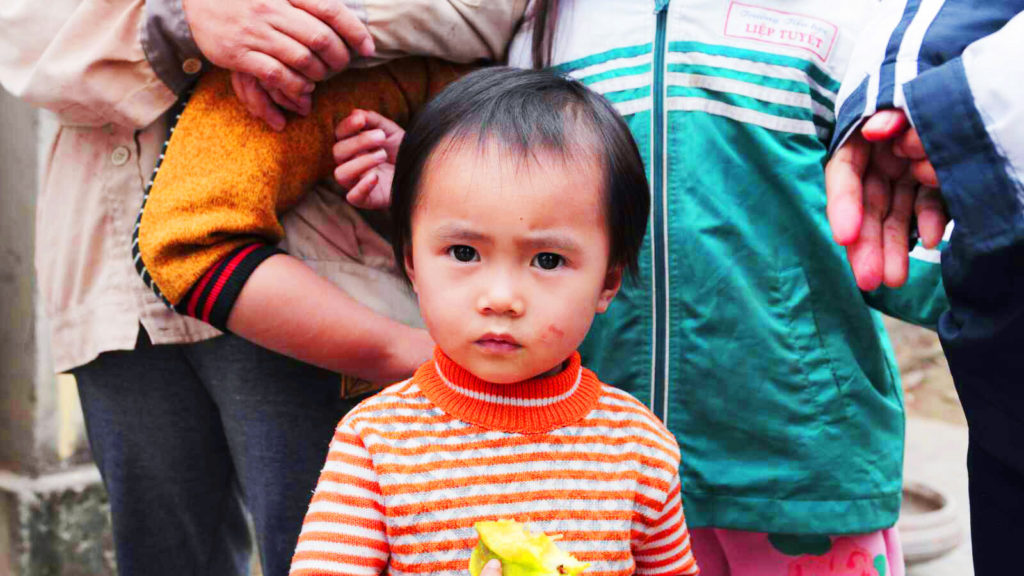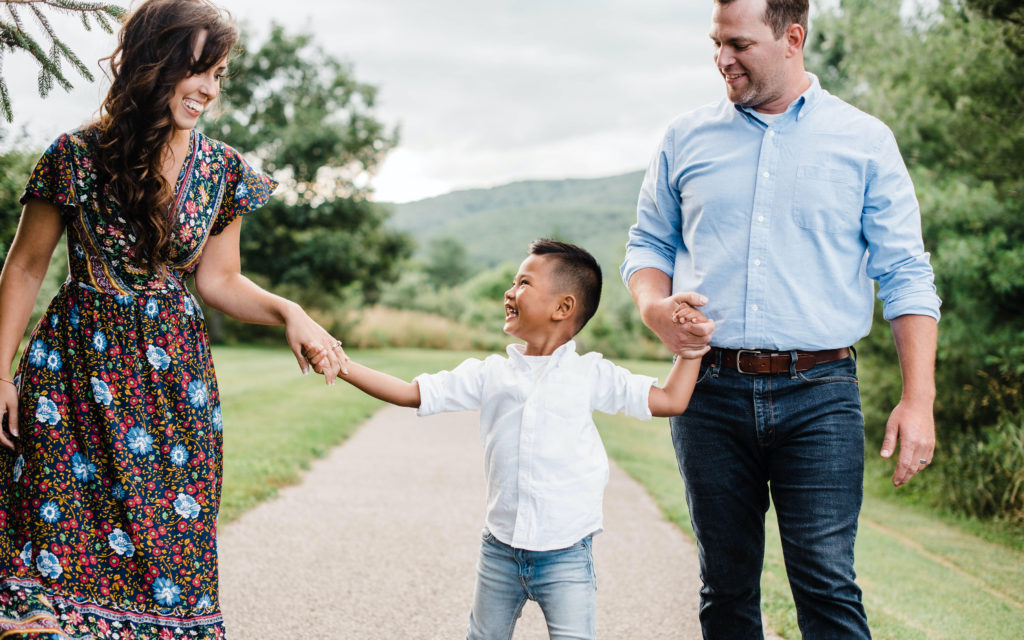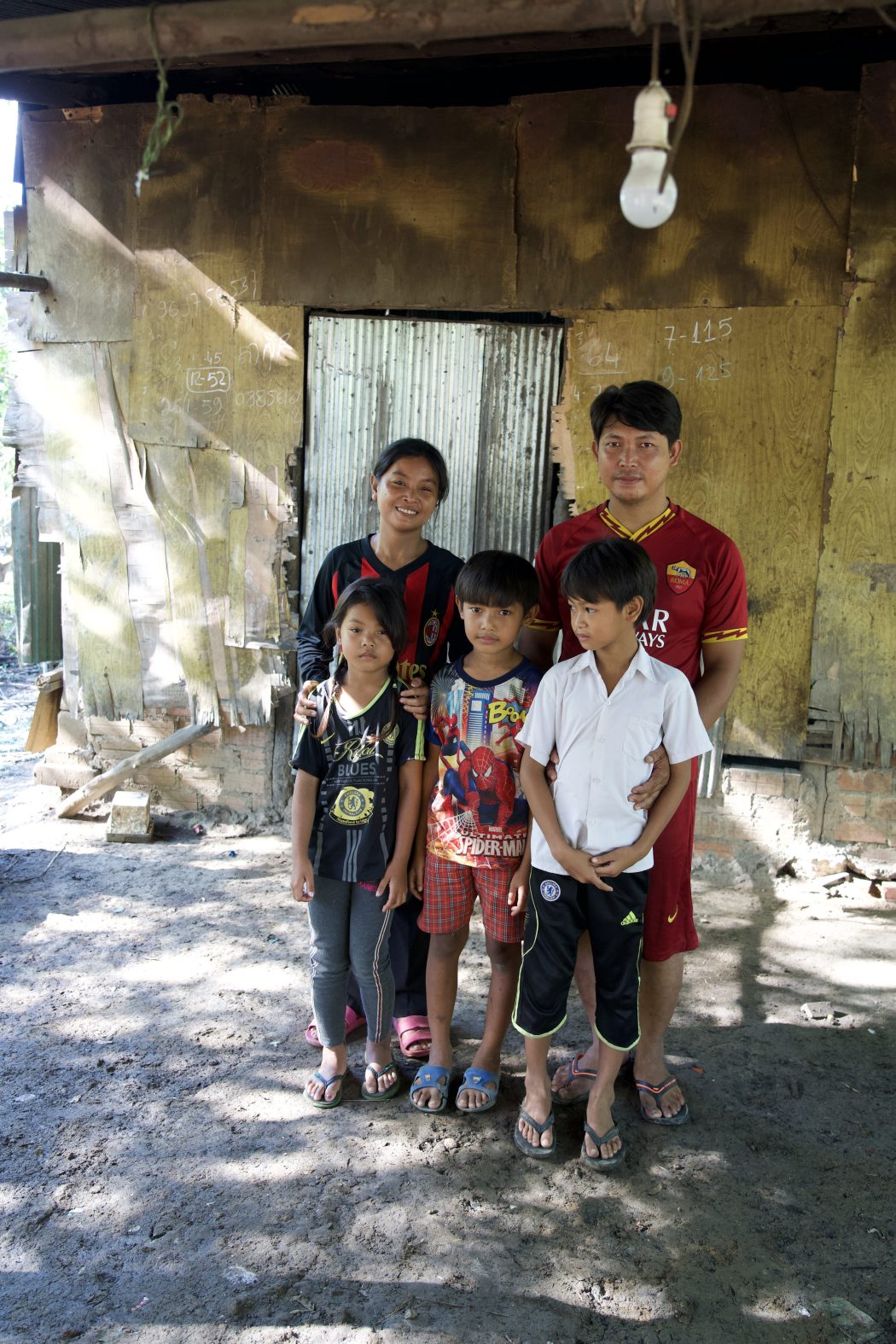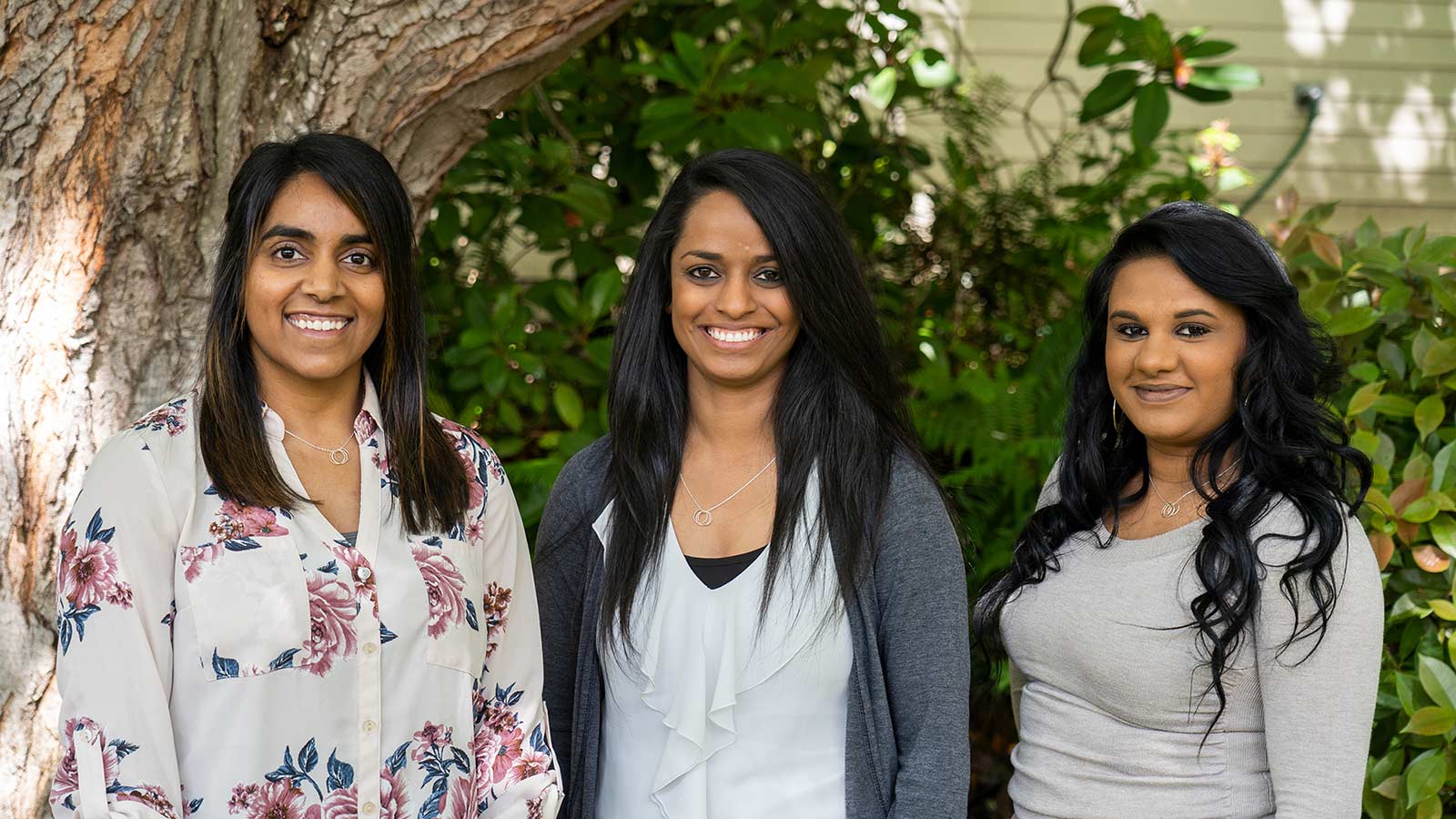Until we live in a world where every child can grow up safe and loved in a permanent, loving family, Holt will continue to provide and advocate for ethical, child-centered international adoption.

Late last month, our fellow U.S. adoption agency Bethany Christian Services announced their decision not to renew their international adoption accreditation when it expires at the end of March 2021. In a blog post, their vice president of global programs, Kristi Gleason, shared how they prayerfully came to this decision after nearly 40 years of helping children come home to families through international adoption.
“The future of adoption is working with local governments, churches and social services professionals around the world to recruit and support local families for children and to develop and improve effective, safe in-country child welfare systems,” Gleason wrote.
We couldn’t agree more with this statement, and we applaud our colleague’s efforts to help find loving, permanent families for children in the countries in which they were born. Before pursuing international adoption for a child, we believe it is the ethical responsibility of every organization working in adoption to first seek a stable, loving home for that child in the country and culture of their birth.
We advocate for in-country adoption in every country where we work, and every year, we now help more children come home to families in their birth country than to families in the U.S. through international adoption.

Help a Child in Greatest Need
Give emergency help to a child who is hungry, sick or living in dangerous conditions. Your gift will provide the critical food, medical care, safety and more they need when they need it the most.
In recent years, we have also celebrated as more and more countries have embraced in-country adoption as a path for children growing up without families of their own. Twenty years ago in China, for example, there were far fewer cases of domestic adoption — and they were typically conducted in private. But as China’s economy has grown, more and more families in China have begun openly adopting children from the country’s many social welfare centers.
Holt advocates for in-country adoption in every country where we work, and every year, we now help more children come home to families in their birth country than to families in the U.S. through international adoption.
We agree with Bethany — this small but steady growth in in-country adoption is unequivocally a positive development in the world of global child welfare. As Gleason wrote, “Today, many children who can’t be cared for by their own families are being adopted into loving homes in their country of birth. This is a good thing, and we praise God for it.”
We, too, praise God for this change.
We also praise God for the number of children who, through family strengthening and preservation initiatives, are now remaining in the loving care of their birth families in many countries across the globe. In countries where poverty may have once compelled families to relinquish their children for adoption, more and more families are receiving the support and resources they need to become stable and self-reliant — and to independently care for their children.
Through the years, Holt has developed robust family strengthening programs in numerous countries, and every year, we help thousands more children stay in the loving care of their families than we help children join families through adoption. In 2019 alone, our generous donors helped over 31,150 children grow and thrive in their birth families through services ranging from food, medical care and educational support for children to job skills training and small business microloans for parents.
We are proud to work alongside governments, in-country partners, ministries, social services organizations and agencies like Bethany that share our passion and our vision for a world where every child has a stable, loving home.
But our vision is still just that — a vision of hope for the future.
Children Still Need International Adoption
Despite our collective efforts, we still unfortunately live in a world where not every child can remain in the loving care of their birth family, or even join an adoptive family in their country of birth. And while we understand and respect Bethany’s decision to end their international adoption program, we at Holt stand committed to doing everything we can to continue international adoption for those children who still need this unique pathway to the attentive, nurturing care, sense of belonging and unconditional love and devotion that only a permanent family can provide.
We still unfortunately live in a world where not every child can remain in the loving care of their birth family, or even join an adoptive family in their country of birth.
Few would question the fact that every child needs and deserves a loving, devoted family to nurture their growth and guide them through life — to give them what even the most well-staffed and well-resourced orphanage or even the best, most loving foster family can’t give them. Permanency.
But as more and more children find permanency through family preservation or domestic adoption in their countries of birth, some have concluded that children no longer need international adoption to have a family of their own.
And that is simply not the truth.
The Children Left Behind
Around the world, thousands of children are growing up in orphanages, group homes and foster homes with no foreseeable plan to go home to an adoptive family. And overwhelmingly, these children have one thing in common: they are either older in age, part of a sibling group or have special medical or developmental needs.
These are the children who stay behind as younger, healthier children join families in their countries of birth.
Progress takes time.
In many countries, adoption continues to face a strong stigma, especially non-relative adoption. And unfortunately, even countries that have embraced adoption have yet to embrace adoption of children with special needs. In many countries, a strong and enduring stigma continues to surround special needs like Down syndrome, cerebral palsy or HIV — and both children and adults with these special needs continue to face discrimination in their everyday lives.
Tragically, it is this stigma and lack of understanding that compels some families to relinquish or abandon their children in the first place. In other cases, families living in poverty simply don’t have the resources to provide costly medical care — and they hope, by relinquishing their child, that he or she will receive the lifesaving care they need.
Across the globe, Holt’s on-the-ground staff is doing everything they can to reunite children living in orphanages with their birth families. In fact, before ever pursuing adoption for a child, we always seek to reunite children with their birth families, whenever possible.
In just the last few years in Cambodia — a country with one of the highest rates of children living in orphanages due to poverty — Holt has piloted a program to help reintegrate children back into their families. In some cases, these children have spent years in an orphanage, and the process of locating their family, re-establishing ties, and then developing a long-term plan for stability has been both long and involved.
The program began three years ago, and while the families involved still struggle with poverty, the Holt Cambodia team now has a small number of successful reunification cases.
Tragically, it is this stigma and lack of understanding that compels some families to relinquish or abandon their children in the first place.
But while we continue to champion efforts to reunite children with their families, and help children join families through in-country adoption, we cannot ignore the thousands of children who remain left behind — growing up in orphanages, without the love and care that every child needs to grow and thrive and reach their full potential in life. Children who cannot wait for the long, slow process of change — for the stigma of special needs to fade, for economic development to reduce the rate of abandonment or for governments to change their laws and practices.
In Korea, the stigma of unwed motherhood remains so firmly entrenched that single mothers are shunned by their families, struggle to find jobs and not only they, but also their child face discrimination in nearly every facet of their lives. It’s no wonder that even in one of the most economically prosperous countries in the world, single mothers and unwed couples continue to abandon or relinquish their children for adoption.
Some of these children may be adopted domestically in Korea. But if they have any kind of special need — even just low birth weight or other minor conditions — their odds of joining a family in their birth country are very unlikely.
These are the children who still need international adoption to have a family.
In Korea, and in other countries where the stigma of single motherhood remains strong, Holt has helped develop programs to empower single women to parent their children. Working with local partners, we help equip them with the job skills training, counseling and parenting support they need to cope with the stigma, and to independently care for their children. Since Holt Korea began the single mother program in 2005, the percentage of women in the program who are choosing to parent their children has grown from 10-20 percent to over 70 percent.
We absolutely celebrate this progress.
Over the past decade, we have also celebrated as more and more families in the U.S. have opened their hearts and homes to the children who cannot remain with their birth families or join adoptive families in their country of birth. Every year, the vast majority of children coming home to families through international adoption have some kind of special need — whether a cleft lip, developmental delays from living in institutional care or something more serious like a life-threatening heart condition
As families learn about the children who remain in care, more and more families are also opening their hearts to older children and sibling groups. In 2019, 68 percent of children who came home to Holt families through international adoption had a special need, while 35 percent were older than age 5.
Where Holt Stands
It’s clear that many families in the U.S. will adopt the children who now need international adoption to have a family. But one compelling reason that Bethany cites for ending their international adoption program is the very high cost of international adoption.
It’s true. In recent years, the cost of fees and expenses required to adopt a child have increased, and this is one factor that has contributed to the precipitous decline in the overall number of international adoptions over the past two decades — falling over 80 percent since the early 2000s.
It’s clear that many families in the U.S. will adopt the children who now need international adoption to have a family.
But as Holt President Phil Littleton wrote in a recent opinion piece published in Philanthropy News Digest, “Agencies must work to remove barriers to adoption and advocate for policy changes at home and abroad. They must also work to make adoption more affordable by growing philanthropic support for adoption, encouraging employers to help cover the cost of adoption and championing legislation that helps reimburse families who adopt.”
In the coming years, we will continue to work alongside fellow organizations like Bethany Christian Services in pursuit of a world where every child can grow up safe and loved in their own communities, their own countries and their own cultures. We will also stand committed to providing post-adoption services for adoptees and their families, throughout their lives.
But until we live in a world where every child can grow up safe and loved not just in their community, but in a permanent, loving family, we will continue to provide and advocate for ethical, child-centered international adoption — just as we have since our founders first pioneered this unique pathway to a family, 64 years ago.

Learn More About International Adoption
We work with families in all 50 states to find loving homes for children from 11 locations around the world!


Excellent! Thank you for your continued work internationally!!
Thank you Holt for this commitment to children and families around the world!
We are a very happy Holt family who adopted our daughter nearly 18 years ago and have continued to sponsor children thru Holt and the family program that is helping children stay with their families and helping the family with job skills and opportunities and school fees and mentoring. We love getting our quarterly reports on our sponsored family. knowing our modest donation continues to help Holt help children is a wonderful feeling!
Yes! Thank you for seeing and understanding that there are seriously important reasons that international adoptions should never be abandoned as one way, often the only way, for some children to find a home and family.
Thank you, Holt International, for all you do.
Several agencies are doing the same, it is very sad. Thank you Holt for your continued work internacionally , God bless you!!!
THANK YOU for your commitment to international adoption! We are waiting to bring home our 2nd child from China with the help of Holt. We will continue to do so till the Lord stops us. And I pray you will do the same. Cannot imagine Holt ever closing the door to international adoption